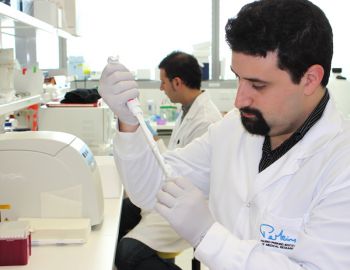
Researchers from the Harry Perkins Institute of Medical Research have used an exciting new technology to successfully switch on dormant tumour suppressor genes in multiple cancer types.
Dr Benjamin Garcia Bloj, along with his labmates from the Perkins Cancer Epigenetics Laboratory headed by Associate Professor Pilar Blancafort, used a gene-editing technology called CRISPR to ‘wake up’ key tumour suppressors to destroy the cancer from within.
In everyday life people often develop potentially cancerous cells, but there are systems that very efficiently recognize DNA damage and either repair it or self-destroy the problematic cell.
“Tumour suppressor genes are like police in the cell, they check that the cell doesn’t have any damage or mutations and isn’t growing uncontrollably,” Dr Garcia Bloj said.
“If the cell becomes badly damaged, the tumour suppressor gene will trigger a process to destroy the cell.”
Dr Garcia Bloj said when these processes fail and a cancer takes hold, certain anti-cancer genes can be switched off but they are still present inside the cell. We call the genes in ‘off mode’ silent or dormant genes.
“Scientists have used CRISPR technology to activate dormant genes before, but our team was able to boost the genes 22,000-fold and stop the cancer growing in vitro,” Dr Garcia Bloj said.
Dr Garcia Bloj explained that the study was a proof of concept to demonstrate its feasibility as a possible future treatment.
“We tested the system on breast cancer, lung cancer and gastric cancer cells. Now we know we can strongly activate these genes and it has a big impact in cancer cells.”
“This could be used for other repair genes that are dormant, you could reactivate the genes to start repairing other parts of the body.”
“Many researchers are focussed on correcting and editing your genes but ever since I was in medical school I’ve been passionate about the concept of teaching your body to heal itself.”
“The human body has more than enough mechanisms to deal with most diseases, so if you can just give those mechanisms a jump start you can make a big difference.”
The research was published in the high impact journal Oncotarget.
Learn more about the Perkins Cancer Epigenetics laboratory.
